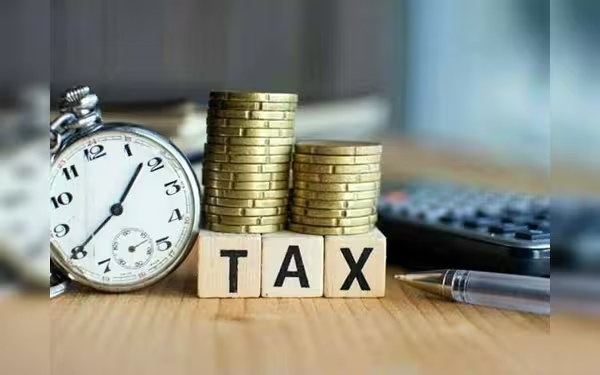Thursday, November 21, 2024 06:09 PM
Urgent Need for Tax Reforms in Pakistan
- Analysts stress urgent tax reforms for economic stability.
- Current tax system discourages compliance and transparency.
- Simplifying tax structure can enhance revenue collection.
 Image Credits: radio.gov.pk
Image Credits: radio.gov.pkAnalysts highlight the urgent need for tax reforms in Pakistan to enhance compliance and revenue collection for public services.
In recent discussions surrounding the economic landscape of Pakistan, analysts have emphasized the urgent need for tax reforms. Taxes are essential for any country, as they provide the necessary funds for government operations and public services. However, in Pakistan, a significant portion of the population remains outside the tax net, which poses a challenge for the government in managing its financial obligations.
Hamayun Iqbal Shami, the Chairman of the Pakistan Economic Forum, has voiced his concerns regarding the current tax system. He stated, "Every country needs taxes to be paid by its citizens in order to run the state affairs." This statement underscores the fundamental role that taxes play in the functioning of a state. Without adequate tax revenue, the government struggles to provide essential services such as education, healthcare, and infrastructure development.
Shami further elaborated on the necessity of adjusting tax rates to encourage more citizens to participate in the tax system. He believes that by bringing the tax rate in line with the economic realities faced by the average citizen, the government can effectively expand the tax base. This approach could lead to a more equitable distribution of the tax burden and ensure that everyone contributes their fair share.
The current tax system in Pakistan has been criticized for being overly complex and burdensome, which often discourages compliance. Many citizens feel that the tax rates are too high, while others believe that the system is not transparent enough. This lack of clarity can lead to confusion and frustration, ultimately resulting in lower tax revenues for the government.
Implementing tax reforms is not just about increasing revenue; it is also about fostering a culture of compliance and trust between the government and its citizens. When people see that their taxes are being used effectively for public good, they are more likely to fulfill their tax obligations. Therefore, it is crucial for the government to communicate how tax revenues are utilized and the benefits they bring to society.
The call for tax reforms in Pakistan is not merely a financial issue; it is a matter of national importance. By simplifying the tax system and adjusting rates to be more inclusive, the government can enhance its revenue collection while promoting fairness and transparency. As the country navigates its economic challenges, prioritizing tax reforms could pave the way for a more sustainable and prosperous future for all citizens.













